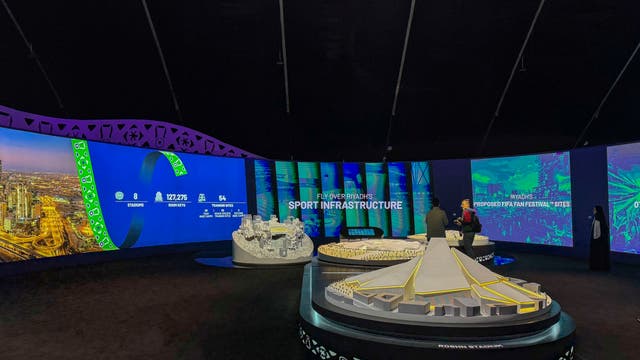
In the sweltering heat of the Arabian Peninsula, a football revolution is quietly gaining momentum, driven by Saudi Arabia's ambitious vision for the sport's future. With a strategic plan that stretches beyond the year 2034, Saudi Arabia is not only looking to host international events but also aims to develop a robust football infrastructure that could potentially reshape the global football landscape.
The Strategic Vision
Saudi Arabia's vision for football is underpinned by the country's broader economic and social reform agenda, known as Vision 2030. This program, spearheaded by Crown Prince Mohammed bin Salman, seeks to diversify the nation's economy and reduce its dependence on oil. Football, with its global appeal and economic potential, is a key component of this vision.
The plan involves massive investments in infrastructure, youth development, and international partnerships. The Saudi government has already made significant strides by securing the hosting rights for the 2027 AFC Asian Cup and launching a bid for the 2034 FIFA World Cup. These events are seen as catalysts for change, expected to draw billions in revenue and enhance the kingdom's international profile.

Building from the Ground Up
At the heart of Saudi Arabia's football revolution is a focus on grassroots development. The Saudi Arabian Football Federation (SAFF) has launched numerous initiatives aimed at cultivating local talent. These include the establishment of football academies across the country, partnerships with European clubs for training and development, and a significant increase in the number of certified coaches.
Furthermore, the Saudi Pro League (SPL) has been strengthened to become more competitive and attractive to international talent. The SPL has seen an influx of foreign players and managers, raising the league's profile and providing local players with the opportunity to compete alongside seasoned professionals. This is part of a broader strategy to enhance the quality of domestic football and prepare Saudi players for international competitions.
Challenges and Sustainability
While the vision is undoubtedly ambitious, there are significant challenges that Saudi Arabia must overcome to realize its football ambitions. One of the primary concerns is sustainability. The country's heavy reliance on foreign talent raises questions about the long-term development of homegrown players. Critics argue that without a strong pipeline of local talent, the country's football success may be short-lived.
Moreover, the intense summer heat poses logistical challenges for hosting international tournaments. The country has invested in state-of-the-art cooling technologies for stadiums, but these solutions come with environmental and financial costs. Additionally, the political climate in the region can be volatile, potentially affecting the country's ability to host international events smoothly.
Global Impact
Saudi Arabia's football ambitions have significant implications for the global football economy. The kingdom's aggressive pursuit of hosting rights and investment in the sport has sparked a competitive dynamic among nations striving to attract international tournaments. This has led to discussions within FIFA and other governing bodies about the allocation of hosting rights and the role of financial incentives in the decision-making process.
Furthermore, Saudi Arabia's approach is influencing other countries in the region to enhance their football infrastructure. The Middle East is fast becoming a hub for international sports, with Qatar hosting the 2022 World Cup and the United Arab Emirates regularly hosting major sporting events. This regional competition could lead to increased investments and improvements in football infrastructure across the Middle East.

The Road Ahead
Looking ahead, Saudi Arabia's football journey is one of potential and promise. The country's commitment to developing its football infrastructure and elevating its status in the global community is evident. However, the success of this vision will ultimately depend on the kingdom's ability to balance its investments with sustainable growth and development.
As Saudi Arabia moves forward with its football ambitions, the world will be watching closely. The outcomes of this strategic vision could provide valuable lessons for other nations seeking to leverage sports as a tool for economic and social transformation. Whether Saudi Arabia can sustain its momentum and achieve its goals remains to be seen, but the journey promises to be an exciting one for football fans around the world.
For further insights into Saudi Arabia's ambitious plans and the broader implications for global football, readers can explore more on The Guardian.